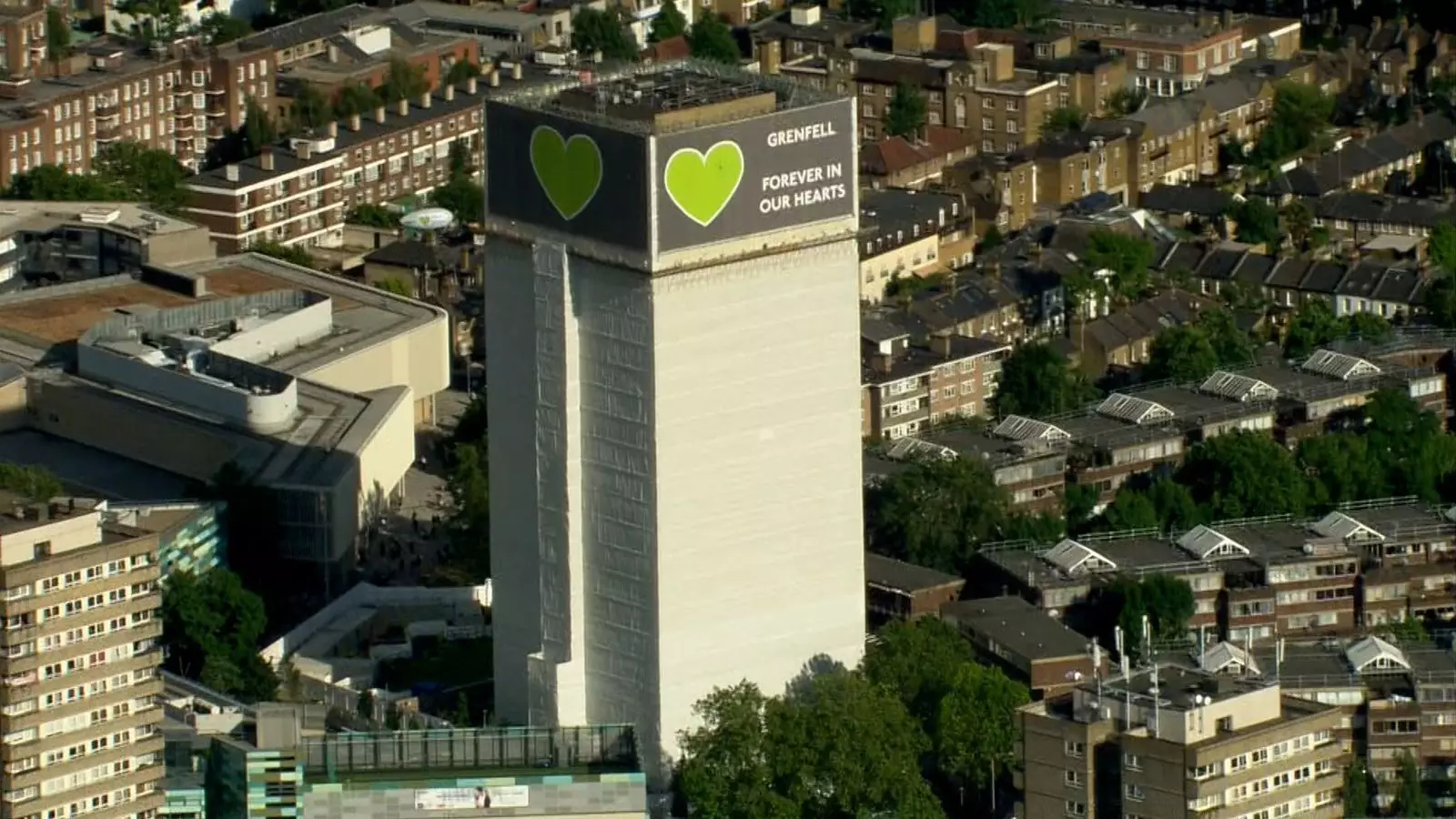The Grenfell Tower tragedy continues to reverberate through the fabric of British society, not only as a reminder of the tragic loss of 72 lives but also as a symbol of inadequate governmental response in times of crisis. Recently, the UK government faced significant backlash after announcing its decision to demolish the tower, a move many view as dismissive of the wishes and emotions of those directly affected by the devastating fire. The anger spearheaded by Grenfell United, a group representing survivors and bereaved families, captures the deep-seated frustrations that plague this ongoing narrative.
At the heart of the criticism lies a perception that the government is systematically ignoring the voices of the families who are still reeling from their devastating losses. The announcement made by Deputy Prime Minister Angela Rayner, which took place during a meeting with bereaved families, was met with astonishment and anger. Those present felt their concerns were not only overlooked but outright disregarded. Grenfell United voiced their disapproval, emphasizing that the meeting revealed a room full of grieving individuals, none of whom supported Rayner’s decision. This moment underscores a glaring disconnect between policymakers and the grieving community, raising the question: how can decisions of such emotional weight be made in the absence of meaningful consultation?
Rayner defended the demolition as a necessary step, yet the justification remained vague and unsatisfactory for most family members. Many of them felt the decision was made without properly accounting for their sentiments regarding the building, which many view as a monument to their loved ones. In this context, the act of demolishing Grenfell Tower becomes not an act of closure but one that perpetuates trauma and feelings of abandonment.
The government has framed the decision to demolish Grenfell Tower as a deeply personal matter, indicating their intentions to prioritize the voices of those affected by the tragedy. However, the insistence on centering this decision around individual opinions seems disingenuous in light of the criticism and overwhelming dissent expressed by the bereaved. The commitment to listen appears feeble when juxtaposed against the realities of the situation; a sentiment echoed by Grenfell Next of Kin, which describes the extended consultations and discussions as ultimately painful, destructive conversations that bring no healing or closure.
This juxtaposition compels one to question whether the government genuinely intends to place the emotional needs of bereaved families above political pressures, or whether the decision to demolish is merely a strategy to erase a painful chapter from public consciousness. Critics argue that while the motivations may be well-intentioned, they are misaligned with the deeply felt need for acknowledgment and remembrance among families who lost loved ones in the tragedy.
As discussions continue to swirl around what should replace Grenfell Tower, bereaved families are urging for a shift in focus—one that fosters healing through remembrance rather than erasure. Grenfell Next of Kin emphasizes the importance of creating a space that honors the memories of those lost while allowing the community to move forward—together. They express a desire for conversations that envision a replacement that serves as a testament to those lives cut short unjustly, as opposed to mere discussions on demolition.
This longing for commemoration echoes a profound need for closure, as past inquiries into the Grenfell fire have highlighted critical failures in fire safety that went unchecked for far too long. The public inquiry revealed layers of systematic dishonesty and negligence from authorities, underscoring the communities’ growing mistrust in those who hold the reins of power.
In the aftermath of such tragedy, it becomes apparent that simply moving forward with decisions like the demolition of Grenfell Tower cannot happen in a vacuum. The government’s next actions must demonstrate a genuine commitment to healing, built upon the acknowledgment of the hurt, trauma, and perspectives of those most affected.
The Grenfell Tower demolition is more than just the physical dismantling of a structure; it represents the complexities of grief, remembrance, and the arduous journey toward healing. Stakeholders must provide thoughtful engagement with bereaved families to ensure their voices shape the future of the site. To do so is crucial, not just for the families’ closure, but for society to learn from these ghastly failures and ensure that such a tragedy is never repeated. The quest for justice and remembrance must remain a priority, and ultimately guide actions surrounding Grenfell Tower’s legacy.

Leave a Reply